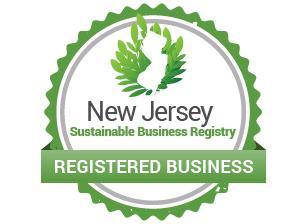About Us »
Pleasant Run Nursery, Inc. Recognized as a New Jersey Sustainable Business
In August of 2014, the New Jersey Small Business Development Centers (NJSBDC) launched the New Jersey Sustainable Business Registry. This Registry is a component of a larger initiative between Rutgers’ New Jersey Small Business Development Centers (NJSBDC) and the New Jersey Department of Environmental Protection (NJDEP). Joining this list of small businesses, Pleasant Run Nursery, Inc., was the first nursery enterprise to be recognized as a New Jersey Sustainable Business.
Pleasant Run Nursery, Inc. achieved recognition in twelve (12) different categories.
Develop Environmentally Preferable Purchasing Plan:
- Catalog is printed on FSC (Forest Stewardship Council) paper.
- Availabilities for tradeshows are printed on 100% recycled paper.
- All printer and copier paper is FSC approved paper.
- Paper products for business events are bioplastic.
Waste Reduction:
- Water coolers are used throughout the nursery and employees use refillable water bottles.
- Annually, by utilizing the 5-gallon refillable bottles we would eliminate over 13,000 (12 oz) plastic bottles.
Waste Reuse:
- We reuse our office paper as scrap paper, and then recycle the paper.
Waste Recycling:
- We recycle our nursery containers, flats and all greenhouse plastic. In 2024, we recycled 32,380lbs of greenhouse plastic.
- In 2024, we recycled 20+ recycled toners/ink cartridges
- All paper, plastic, glass, card board and aluminum containers/cans are recycled and delivered to the recycling center. In 2024, waste was reduced by 80,000lbs/yr. This is equivalent to 40 tons/per year of recycled materials not sent to landfills.
Energy Efficiency
- All bulbs are GE Energy Efficient Reveal® Halogen bulbs. They use 28% less energy than less conventional light bulbs. We also installed motion sensor lighting at office and potting barn.
Renewable Energy
- Installation of Solar System at the nursery. The system consists of 3 rows of solar panels; each row is 200 feet in length and 15 feet wide. The energy generated by the solar panels powers the entire nursery including the pump house, business office and owner’s home, propagation house and over 88 greenhouses. We average a $10,000 savings per year.
Employee Commute:
- Fifteen (15) employees commute to work via carpooling. Instead of 15 cars travelling the total number is 4. Total miles reduced by utilizing carpooling are over 67,000 miles per year.
Fleet Vehicles:
- Electric golf cart batteries are charged by solar panels. Currently, we have 17 golf carts, used by staff and customers.
Water Conservation:
- Utilization of drip irrigation on approximately 20% of the nursery reduces the over-usage of water, especially during the hot summer months. We utilize a “Pulse style” irrigation schedule. Our irrigation schedule provides more consistent moisture and maintains constant soil temperatures, while reducing runoff by short duration application of water at multiple times per day. This program allows us to reduce our fertilizer rate since it makes our use of fertilizer more efficient and minimizes our leachate.
Stormwater Management & Site Design:
- Bioswale and Rain Garden
- Nursery Roads are ¾” clean gravel, to help reduce the speed of rainwater runoff and allow for infiltration into our ground water.
- Over 130 growing areas are fully permeable surfaces for irrigation and rain water.
- Landscaped display beds feature native plants for wildlife habitat.
- IPM management:
- Beneficial insects used in the propagation house to help reduce pesticide use.
- Routine scouting program and weekly visits from a nursery scout.
- Sustainment of wildlife habitat placed throughout the nursery:
- 6 Bat houses
- 10 Purple Martin houses.
- 9 maintained beehives.
- 100+ Chickens co-habitat with Guinea fowls and 2 two Sicilian donkeys.
- All these animals, birds and insects help with monitoring IPM.
- Root Dip/Root Shield/Actino-iron: Organics are used to reduce root diseases and promote vigorous growth of root systems and tops, limiting the use or need for synthetic fungicides.
- Native Plants: We continue to remove aggressive invasive plant that border the nursery property. This helps to attract native beneficial insects and song birds, and create healthy habitats for our wildlife.
Support the wellbeing of your employees.
- Employee vegetable gardens: 6 gardens at the nursery which provide vegetables for all employees.
- Chicken: Produce eggs which are shared by the owners and staff.
- Beehives: Harvested honey is shared with all staff.
In 2016, we added another category:
Environmental & Community Restoration
- Currently at PRN, we have a total on 13 working beehives. In 2016, we added 4 additional hives. The standard hives we use at PRN have two deep supers; the supers are where the bees live. The average peak population in the month of June is 60,000* adult bees.
*http://articles.extension.org/pages/21747/seasonality-of-brood-and-adult-populations-basic-bee-biology-for-beekeepers PRN’s Measurable Results: 4 x 60,000 = 240,000 additional bees
For more information about the registry visit: http://registry.njsbdc.com/

